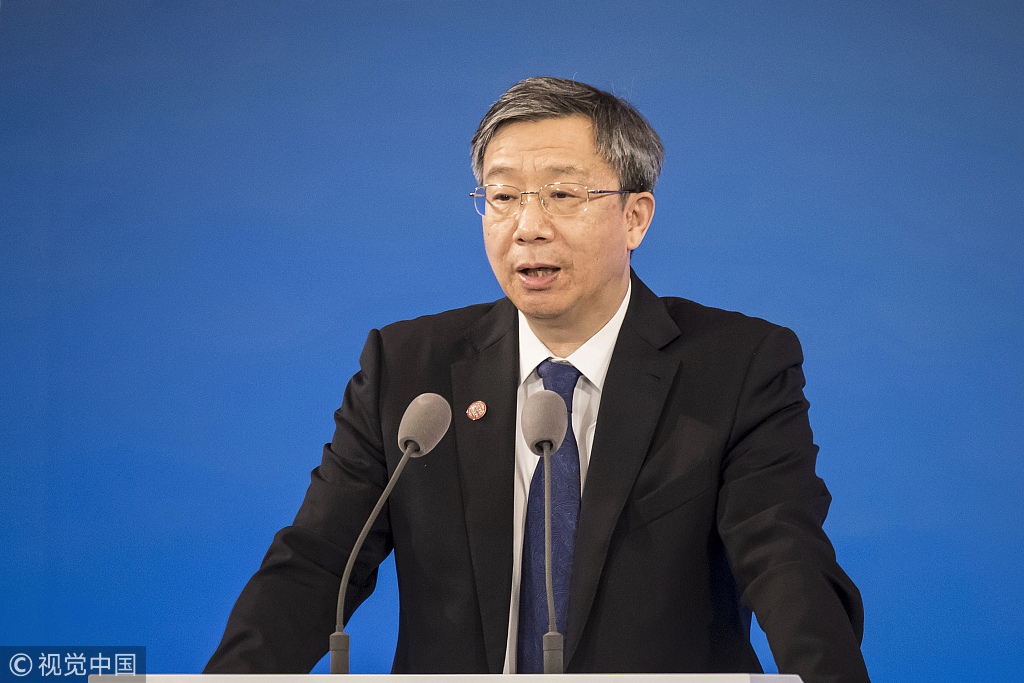Policymakers wary of external shocks


Sharp fall in stock prices due largely to ‘investors’ emotions’, says central bank chief
China is preparing comprehensive monetary policy tools to maintain reasonable and stable liquidity, as policymakers keep a close eye on external shocks, central bank governor Yi Gang said on Tuesday.
“We will keep the proper strength and pace for structural deleveraging and facilitate stable and healthy economic growth, avoiding systemic financial risks,” Yi said in an interview with Shanghai Securities News.
“The stock market fluctuation on Tuesday was mainly influenced by investors’ emotions,” said the central bank governor, commenting on the biggest daily drop in China’s stock prices in the past two years.
The benchmark Shanghai Composite Index sharply decreased by 3.78 percent at the close. “Investors are suggested to remain calm and rational,” as the nation’s economic foundations are sound and stable to support healthy development in the capital market, “and I am full of confidence,” said Yi.
The central bank injected liquidity through open market operations on Tuesday to stabilize the market and strengthen investors’ confidence, as experts expected flexible policy fine-tuning may continue to prevent risks.
The People’s Bank of China, the central bank, launched a 100 billion yuan ($15.4 billion) reverse repurchase and 200 billion yuan medium-term lending facility on Tuesday, in order to “supplement the medium to long-term liquidity gap”, according to a statement published on its website.
The move is also to offset influences from the tax payment peak, the payment of government bonds and the expiry of central bank’s earlier reverse repurchase, said an official from the central bank’s monetary policy department, as all the factors together could result in a sharp decrease in interbank liquidity.
It signaled that policy fine-tuning may continue in the future, including a possible easing of the reserve requirement ratio — the cash amount that should be reserved in financial institutions, to avoid risks rising after an effective financial deleveraging process this year, said Lu Zhengwei, chief economist with Industrial Bank.
Xu Zhong, director of the central bank’s research bureau, wrote in a working paper published on Tuesday that banks’ RRR should be appropriately lowered to ease the burden on the nation’s financial institutions.
“However, as China is still a developing country, it is still necessary to keep the RRR at relatively high levels,” it said.
A day earlier, the PBOC issued a separate statement on its website, indicating that liquidity in China’s interbank market has remained reasonable and stable, and credit growth has been moderate.
“The PBOC will continue to pay close attention to both internal and other economic and financial trends, to implement a prudential and neutral monetary policy, strengthen forecasting and step up efforts in policy fine-tuning,” it said.
The policy is targeting to support real economic growth, especially for small and micro-sized firms, and to stabilize market expectations while improving financial reform and opening-up.
Contact the writer at [email protected]




































